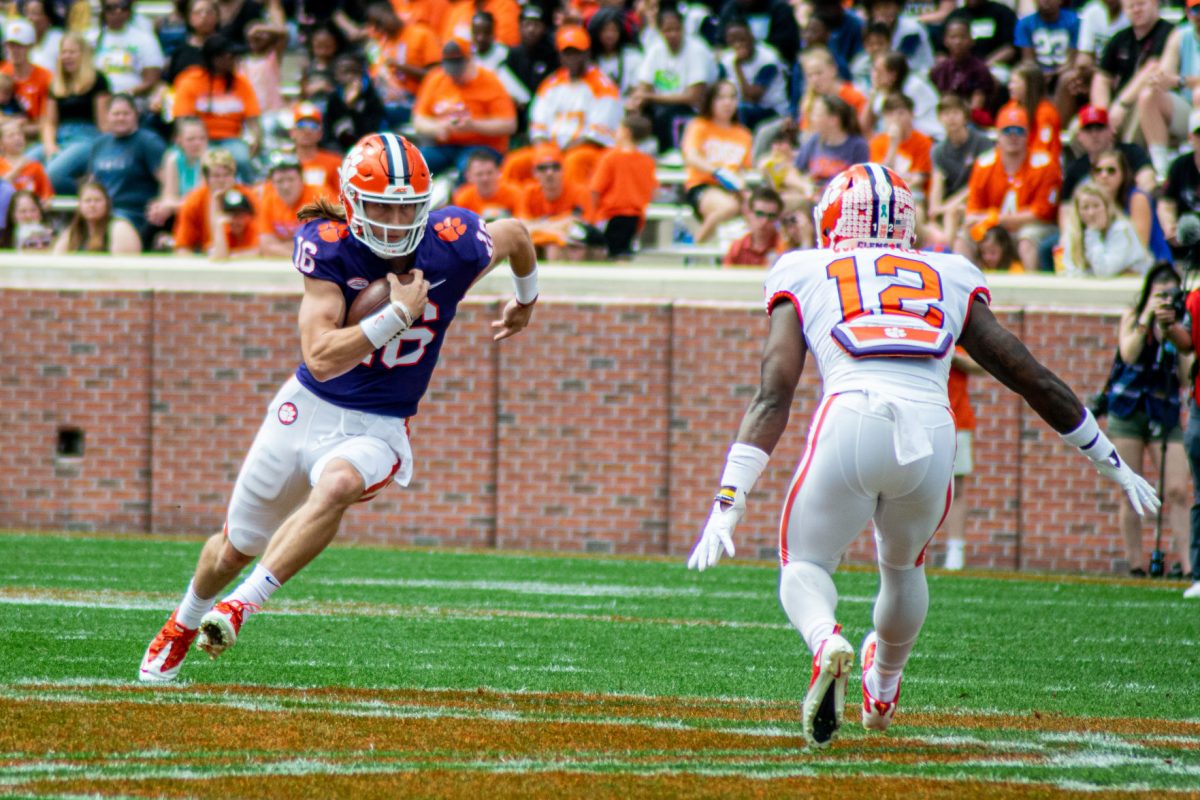August 29, 2019 is GameDay, football GameDay. The Clemson Tigers begin their campaign for their third College Football Playoff National Championship in four years, a feat which would rank them among the great dynasties of college football.
Yet, do we at Clemson attach too much importance to the football program? Ironically, August 29 is also the day Clemson tests its new approach to disaster planning and off-campus, online teaching. On the very day Trevor Lawrence and his teammates are parading their 2019/2020 gear, the rest of the university is being cleared out to make way for them.
Look at what has happened to Clemson in the decade since Dabo Swinney took over the football program and brought success and national attention to our university. Enrollment has swelled. The coffers have filled – and not just those of the football program. More professors have been hired. New building is off the charts.
Granted, it is again an irony that a past-time … hmm, how to put this without offending? … football is not exactly the undertaking one normally associates with Nobel Prizes. No offense, guys. I know that Dabo Swinney and academics place equal emphasis on studies as athletics. Yet, perceptions are perceptions, and one perception is that the success of the football program has enabled growth of the entire university, benefiting all. But, is it benefiting all?
There is a competitive Clemson fencing team. Do students know about its achievements? One of the oldest competitive teams at Clemson, not in terms of age, but longevity is the Debate Society. Last semester, Clemson hosted the United States Universities Debating Championship. Who knew this fact?
Wait, whose fault is it that Clemson doesn’t place more focus on other teams or activities? Is it Lawrence’s fault? What would we rather he do? Do we want him to take one for the Clemson team, start tossing footballs into the stands so that Clemson loses games and brings itself down from the heights? What, then, would happen to the national attention and the burgeoning student rolls and the monies that follow?
Maybe Clemson should refuse all television cameras? Should we have no more Swinney interviews with ESPN or perhaps win the National Championship a dozen times but not tell anyone?
Maybe, instead, the fault lies elsewhere, with the remainder of the administration and faculty or perhaps with this newspaper? When did The Tiger last report results from the Debate Society? Yet again, is the fault mere attention, or is it about something more tangible, such as following the money?
Would it be the case that we’d happily wave banners and wear specifically football orange day-in, day-out if we knew that more of the monies flowing from football success were being allocated to those activities we’d like to see featured more prominently?
Think about the audit trail. Students take the football field. Students win the National Championship. Their success attracts other students. They bring with them finances, from parents or through financial aid. It is that latter money that is available to be spent on other activities. So, why isn’t it being spent?
Does the fault lie with the football program, or does it lie with those making decisions about how that money is spent? So, who makes the decisions? The answer is the Board of Trustees. Are students involved in the decision-making? No. Do they at least get to make suggestions? Yes, we can make an impact through the Clemson Undergraduate Student Government.
Does CUSG lobby for student representation on the Board of Trustees? Apparently not. Why not? Ask them, because perhaps, just perhaps, the answer to the subject-heading question is that Clemson pays as much attention to its football program as that program deserves. Where insufficient light is shone on is why spending decisions on matters that affect students do not involve students enough. Maybe?









